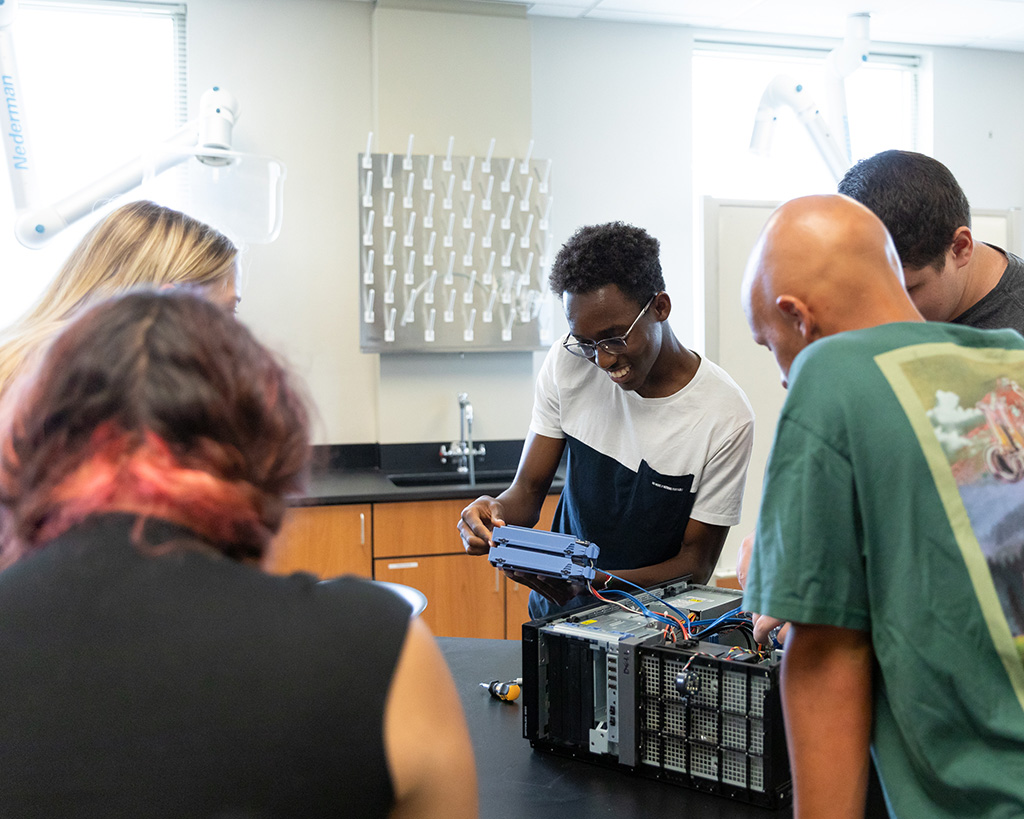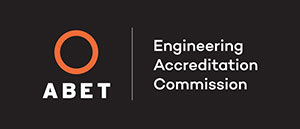Software Engineering (BS)
Software Engineering is the engineering discipline that utilizes a systematic approach to the development, production, operation, and maintenance of software. The Bachelor of Science degree in Software Engineering (SE) at FGCU prepares students in the theory and methods of systematic and rigorous construction of software for industrial, scientific and commercial applications.

Software plays an increasingly important role in our daily life. According to the Bureau of Labor Statistics’ Occupational Outlook Handbook 2020-2030 Edition, more than 409,500 new software engineer positions - a 22% increase - will be created over the 2020-2030 period, making this field grow almost three times faster than the average occupation. The mission of the B.S. Software Engineering degree program is to deliver graduates with a high-quality education in engineering and computer science who are well prepared for careers as valuable contributors in application software development, system software development, as well as for further graduate study. FGCU provides an entrepreneurial, interdisciplinary, and service-oriented environment and curriculum while valuing diversity and professionalism in our field and collaboration across the engineering and computing disciplines.
Software Engineering students complete core courses including traditional Computer Science courses and specific Software Engineering courses.
- Computer Science: Object-oriented programming, data structures and algorithms, operating systems, and computer organization and networking
- Software Engineering: Software engineering fundamentals, software requirements engineering, software architecture and design, software testing, and team-oriented senior software engineering projects.
Further specialized courses in human computer interaction, robotics, natural language processing, digital systems and assembly language are among the possible SE electives. In addition, students can take electives in computer information systems.

Software Engineering Facilities
Pictured below are a few of the spaces that Software Engineering students frequent.
Computer Lab
Many Software Engineering courses take place in a classroom like this classroom donned with desktop computers. This style of classroom can be found on the 2nd and 4th floors.
Viper Lab
This lab is dedicated to virtual reality and its different applications. The lab has a variety of equipment available for student use such as Oculus rifts. The lab uses game engines, like Unity and Unreal, to develop different simulations. The lab provides a low code environment for its projects therefore, the lab is used by all the engineering disciplines. The lab also aids with the construction management program to visualize the interior of buildings.
Software Engineering Lab
This is a great study area for our Software Engineering students.
Software Design Studio
Our Software Engineering students plan, build, design, and analyze their projects. This area has conference tables for group work and group projects. The Software Design Studio has the capabilities of hosting servers for computer network projects.
-
Accreditation
Toggle More Info -
Admissions Information
Toggle More Info -
Program Requirements
Toggle More Info -
Degree Map
Toggle More Info -
Course Description
Toggle More Info -
Course Schedule
Toggle More Info -
Educational Objectives and Student Outcomes
Toggle More Info -
Learning Outcomes
Toggle More Info -
Tuition, Fees, and Financial Assistance
Toggle More Info


